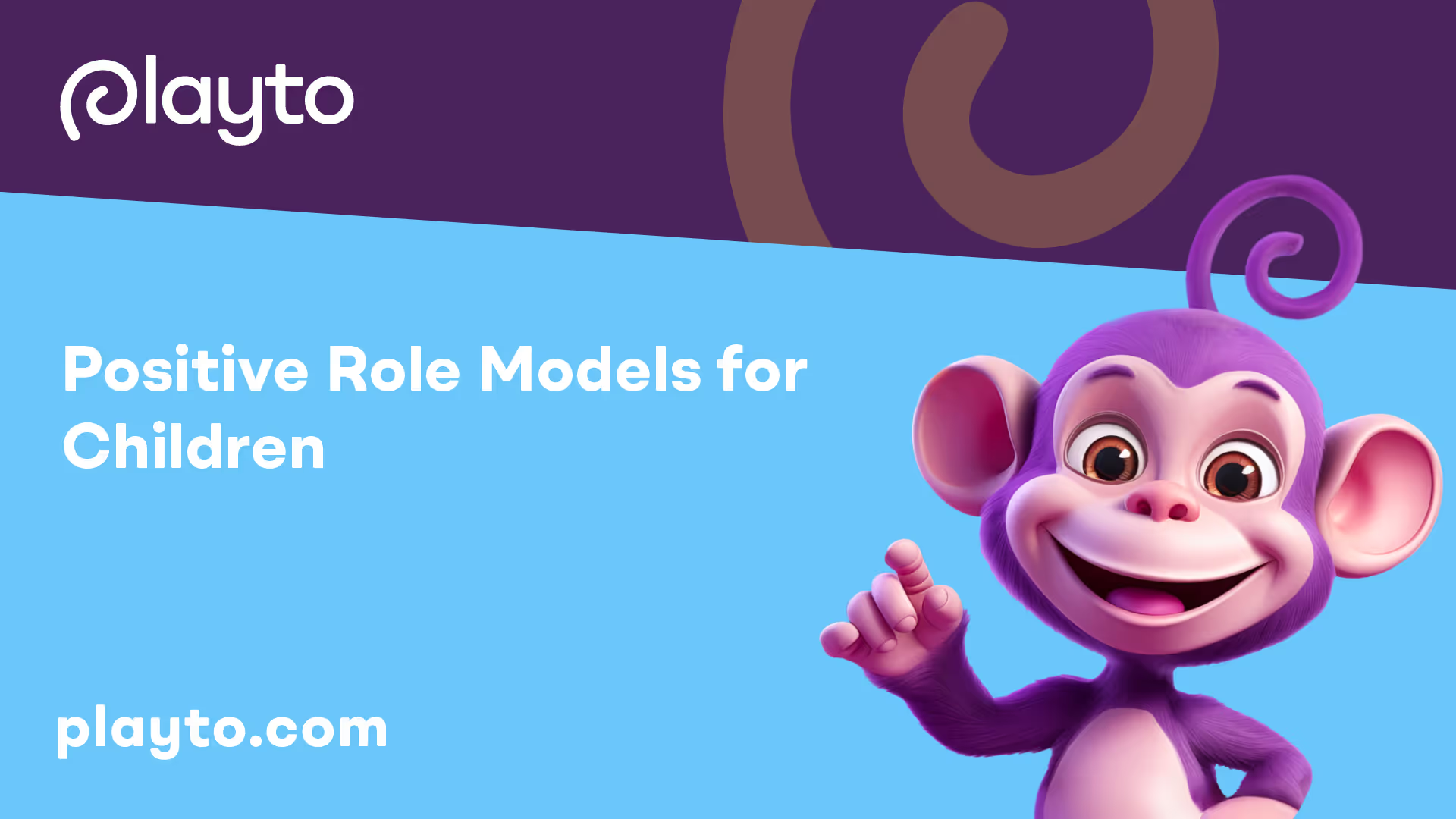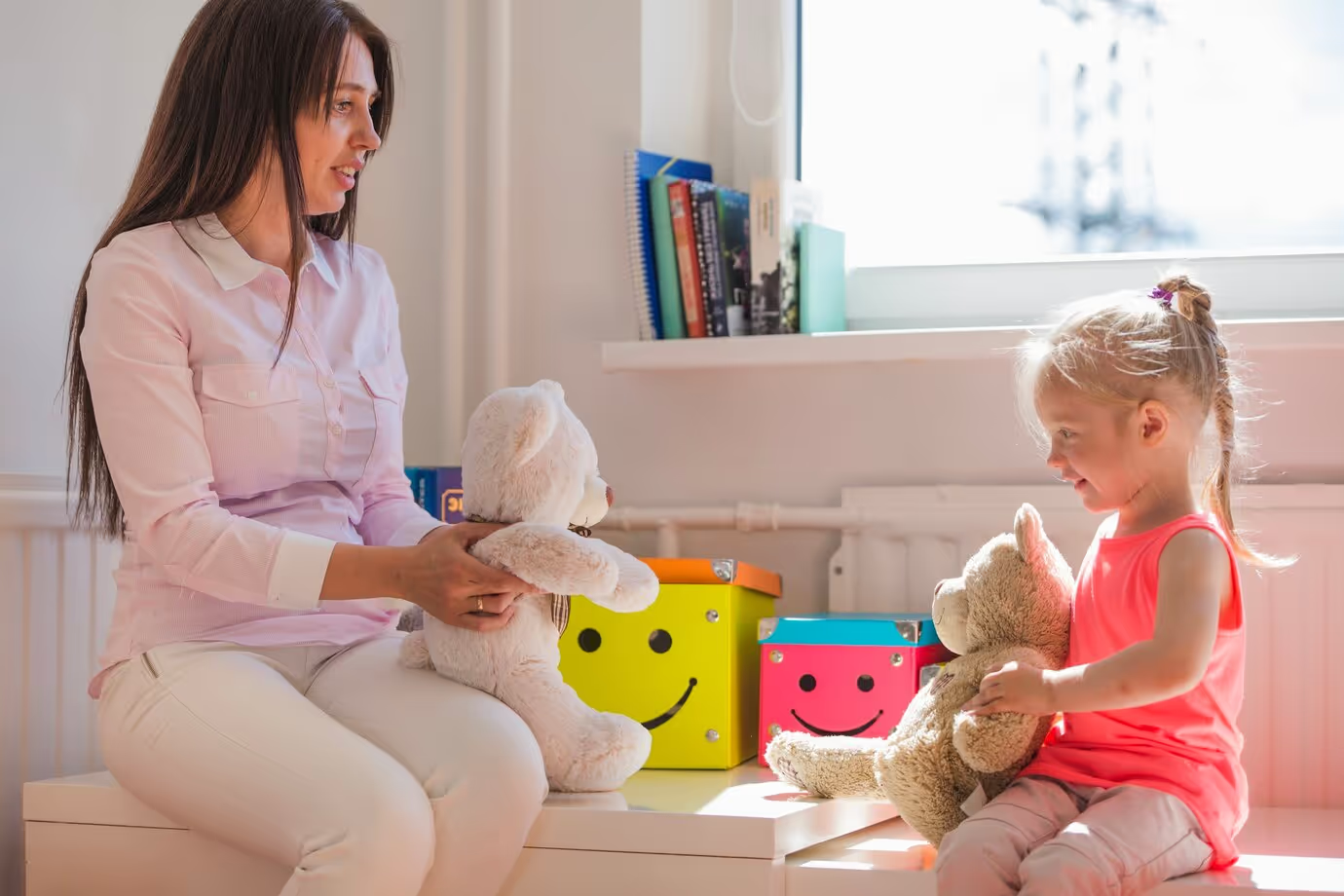
Building Positive Self-Image in Daycare
In a daycare setting, fostering a positive self-image is crucial for the emotional well-being and healthy development of children. This section explores the importance of community involvement, the role of relationships in child development, the impact of positive self-esteem, and strategies for encouraging self-confidence.
Importance of Community Involvement
Children grow emotionally, intellectually, and physically through their relationships and their connection to the community. Community involvement provides children with a sense of belonging and plays a vital role in building their identity [1]. When children see their community actively engaged and invested in their growth, it sends a powerful message that they are important, loved, and belong. This sense of belonging helps children develop a positive self-image and strengthens their overall well-being.
Role of Relationships in Child Development
Positive relationships are foundational for children's development. Building strong relationships with young children is essential for their growth and learning. Close and dependable relationships provide love, security, nurturance, and responsive interactions, which are crucial for children to develop a positive self-image [1]. When children feel safe and supported in their relationships, they are more likely to develop a healthy self-concept and a positive outlook on themselves and the world around them.
Impact of Positive Self-Esteem
Positive self-esteem has a profound impact on a child's overall well-being. When children have a positive self-image, they are more likely to feel confident, capable, and resilient. They are better equipped to handle challenges, develop healthy relationships, and engage in learning [1]. Nurturing positive self-esteem in daycare sets the foundation for children to develop a strong sense of self-worth and empowers them to navigate life's ups and downs with resilience and confidence.
Encouraging Self-Confidence
In daycare, there are various strategies to foster self-confidence in children. By creating a supportive and empowering environment, caregivers can help children develop a positive self-image. Some effective strategies include:
- Promoting Independence and Problem-Solving: Encouraging children to make choices, solve problems, and complete tasks independently builds their self-confidence. Offering age-appropriate opportunities for self-help skills and decision-making helps children recognize their capabilities and builds a positive self-image [2].
- Boosting Confidence through Challenges: Providing children with age-appropriate challenges helps them develop a growth mindset and resilience. Encouraging them to take on new activities, try new skills, and persist through difficulties builds their self-confidence [3].
- Building Self-Esteem through Interactions: Positive and supportive interactions with caregivers and peers play a crucial role in developing children's self-confidence. Praising their efforts, highlighting their strengths, and providing constructive feedback helps children develop a positive self-image [4].
By prioritizing community involvement, nurturing positive relationships, emphasizing positive self-esteem, and implementing strategies to encourage self-confidence, daycare providers can create an environment that promotes a positive self-image in children. These foundational experiences contribute to their overall well-being and lay the groundwork for their future success.

Parent and Teacher Collaboration
Collaboration between parents and teachers in daycare settings plays a vital role in encouraging positive self-image in children. When parents and teachers work together, students experience numerous benefits and develop essential social and emotional skills. This section focuses on the benefits of school involvement and strengthening family-school relationships.
Benefits of School Involvement
School involvement by parents offers a multitude of advantages for children's development. According to Parent and Teen, when parents actively engage with their child's school, students report higher levels of motivation and self-esteem. Additionally, school involvement fosters the development of key social and emotional learning skills such as self-awareness, relationship building, and responsible decision-making.
By participating in school activities and functions, parents can build relationships with teachers and staff, creating a supportive network for their child's growth. School involvement also provides an opportunity for parents to meet other families in the neighborhood, fostering a sense of community within the larger school environment. This engagement helps the school community evolve and meet the needs of the students as a whole.
Strengthening Family-School Relationships
The collaboration between parents and teachers strengthens family-school relationships, creating a partnership that benefits children's holistic development. This partnership allows students to learn and grow from a broader range of viewpoints and life experiences, as highlighted by Parent and Teen.
Parents can contribute to their child's education and well-being by participating in school activities and events. This involvement can take various forms, such as helping with functions, volunteering in the classroom, or communicating regularly with teachers. Additionally, parents can extend their involvement beyond the school premises by guiding their children in managing homework and other commitments, engaging in discussions about values and attitudes regarding education, and supporting their child's learning journey at home.
By fostering a strong family-school relationship, parents and teachers can create a supportive and nurturing environment for children, promoting positive self-image and overall well-being. This collaborative effort enhances the educational experience, allowing children to thrive academically, socially, and emotionally.
To further explore strategies for encouraging positive self-image in daycare, consider reading our articles on encouraging self-help skills in daycare children, encouraging literacy skills in daycare, encouraging positive behavior in daycare, encouraging physical fitness in daycare, encouraging cultural diversity in daycare, and encouraging healthy eating habits in daycare.

Positive Role Models for Children
In the journey of encouraging positive self-image in daycare, positive role models play a crucial role. Children look up to and learn from the individuals they perceive as role models, who can include parents, older siblings, neighbors, friends, teachers, counselors, community leaders, and even celebrities [5]. Having positive role models is essential for childhood development as children learn and emulate positive character traits and behaviors from them.
Influence of Role Models
Positive role models have a significant impact on children's self-esteem and overall development. By observing and interacting with positive role models, children learn about resilience, empathy, integrity, and various other desirable qualities. Role models also help children understand the importance of setting goals and working towards achieving them. They inspire children to strive for success, motivating them to reach their full potential [6].
Characteristics of Positive Role Models
While the text does not explicitly mention the three essential characteristics of positive role models, they can include integrity, empathy, and resilience. These traits can influence children positively and provide them with a framework for developing their own character. Positive role models demonstrate honesty, kindness, and empathy, which children can emulate in their own lives.
Becoming a Positive Role Model
Anyone can serve as a positive influence and role model for children, including parents, teachers, and community members. Acknowledging and taking ownership of the potential role model status can help individuals embody more intentional and positive role-model behavior, especially for teenagers [5]. To become a better positive role model, one can focus on specific qualities they want to embody and promote. Reflecting on the qualities of past role models and implementing them in relationships can aid in this process.
As caregivers and educators in daycare settings, it is essential to recognize the influence we have on the children in our care. By embodying positive qualities and behaviors, we can become positive role models ourselves. Modeling kindness, empathy, and integrity in our interactions with children inspires them to develop these qualities within themselves.
In conclusion, positive role models are crucial for nurturing positive self-image in children. They provide guidance, inspiration, and examples of desirable character traits. By cultivating an environment where positive role models are celebrated, we can help children develop a strong sense of self-worth and encourage their overall growth and development.
Activities Fostering Self-Esteem
In a daycare setting, it is crucial to provide activities that foster positive self-esteem in children. These activities not only promote a healthy sense of self but also help children develop confidence, independence, and problem-solving skills. Let's explore three key activities that can nurture self-esteem in daycare children.
Promoting Independence and Problem-Solving
Encouraging children to demonstrate independence and problem-solving skills can greatly contribute to fostering a positive self-image. Activities such as packing for a trip, inventing a recipe, and assigning a chore with a purpose allow children to take charge and showcase their abilities [7].
By engaging in these activities, children learn from their mistakes, teach others, care for the environment, and practice multi-step planning. This process empowers them to develop a sense of accomplishment and self-assurance. As educators and caregivers, it is important to provide support and guidance while allowing children to take ownership of their tasks.
Boosting Confidence through Challenges
Challenging children with age-appropriate activities can significantly boost their confidence. For example, problem-solving challenges that require critical thinking, logical reasoning, and creativity can help children develop resilience and a positive self-image [7].
Engaging children in activities like making slime, building structures with blocks, or completing puzzles can provide opportunities for them to overcome obstacles, learn from their mistakes, and experience a sense of accomplishment. Celebrating their efforts and achievements during these challenges helps reinforce their confidence and self-esteem.
Building Self-Esteem through Interactions
Positive interactions with peers and caregivers play a vital role in building self-esteem in daycare children. Encouraging children to interact with others and share their knowledge or skills can boost their confidence and self-assurance [7].
For example, engaging children in activities where they can teach their friends how to make something, like slime, not only enhances their self-esteem but also promotes social connections and cooperation. These interactions provide children with a sense of competence and empower them to contribute to the learning and growth of others.
By incorporating activities that promote independence, problem-solving, and positive interactions, daycare providers can create an environment that fosters positive self-esteem in children. These activities empower children to believe in their abilities, overcome challenges, and develop a strong sense of self-confidence. As children gain confidence in their capabilities during their early years, they are better equipped to face future challenges with resilience and self-assurance.
Self-Esteem Development in Early Childhood
During early childhood, nurturing a positive self-concept is essential for the healthy development of children's self-esteem. As they grow and explore the world around them, their sense of self begins to take shape. In this section, we will explore how to nurture self-concept in toddlers, support primary school-age children, and cultivate self-identity in adolescence.
Nurturing Self-Concept in Toddlers
Toddlers are starting to develop an understanding of themselves, what they can do, and what makes them who they are. It's important to provide a supportive environment that encourages their self-esteem. Building a toddler's self-esteem can be achieved by providing opportunities for them to try new things, face challenges, and value themselves for their efforts.
Encouraging independence and self-help skills is one way to foster a positive self-concept in toddlers. Allowing them to dress themselves, choose activities, and participate in simple tasks helps build confidence and a sense of accomplishment. By providing positive feedback and acknowledging their efforts, caregivers can help toddlers develop a positive self-image.
Supporting Primary School-Age Children
As children enter primary school, they become more aware of themselves in relation to their peers. They might compare themselves academically, physically, athletically, and socially. Parents can support their primary school-age children by encouraging them to see that they don't need to be perfect at everything to feel loved, valued, and worthwhile.
To support their self-esteem, it's important to foster a safe and inclusive environment where children feel accepted and valued for who they are. Encouraging their interests and strengths, celebrating their achievements, and providing opportunities for them to explore their talents can contribute to their self-concept and self-worth. It's crucial for parents and educators to emphasize that mistakes and setbacks are part of the learning process and do not define their worth.
Cultivating Self-Identity in Adolescence
Adolescence is a time of significant self-discovery and identity formation. Challenges at school and in social relationships can sometimes dent a teenager's self-esteem as they may feel less capable than others for the first time. However, these experiences can provide valuable learning opportunities for adolescents to understand that they are loved and valued regardless of their imperfections, helping them believe in themselves and feel worthwhile.
Cultivating a healthy self-identity in adolescence involves supporting teenagers as they navigate their changing sense of self. Encouraging them to explore their passions, express their opinions, and make independent decisions can foster a sense of self-worth and autonomy. Providing a supportive network of family, friends, and mentors who accept and appreciate them for who they are can contribute to their positive self-image.
By nurturing self-concept in toddlers, supporting primary school-age children, and cultivating self-identity in adolescence, caregivers and educators can play a vital role in fostering positive self-esteem in young children. It's important to create an environment that promotes self-acceptance, resilience, and the belief that each individual is unique and valuable in their own right.
Positive Guidance Strategies
When it comes to fostering a positive self-image in daycare, implementing effective behavior management techniques and employing positive guidance strategies are essential. Positive guidance in early childhood education focuses on helping children learn self-control, develop healthy self-regulation and social-emotional skills, and respond to negative behavior with constructive methods. It is crucial in promoting future growth, teaching self-control, responsibility, and thoughtful decision-making.
Importance of Positive Guidance
Positive guidance is crucial in early childhood development as it not only corrects behavior but also promotes long-term growth and development. By using positive guidance strategies, educators can preserve children's self-esteem, dignity, and uncover underlying problems that may be causing challenging behavior. It teaches healthy self-regulation techniques and helps children develop a sense of security and confidence in themselves.
Punishment should not be a part of positive guidance in early childhood education, as it can lead to children feeling guilty or scared. Instead, reasonable consequences should be implemented with love and concern to help correct actions and model appropriate behavior. This fosters a positive learning environment and teaches children healthy self-regulation techniques.
Implementing Effective Behavior Management
To create a positive and supportive atmosphere in the daycare setting, it is important to implement effective behavior management strategies. Here are some strategies that can be used:
- Positive Language: Use positive language when addressing children. Focus on praising their efforts and accomplishments rather than solely pointing out mistakes or misbehavior. This helps to build their self-esteem and encourages positive self-image.
- Offering Choices: Give children age-appropriate choices whenever possible. This allows them to feel a sense of control and autonomy, promoting their self-confidence and decision-making skills.
- Redirection: Instead of focusing on negative behavior, redirect children's attention to more appropriate activities or behaviors. This helps them understand what is expected of them while avoiding unnecessary confrontations.
- Timing Guidance Appropriately: Address behavioral issues promptly and calmly. It is important to provide guidance in the moment, allowing children to connect their behavior with the consequences or expectations.
- Regular Observation: Regularly observe children's behavior and interactions, looking for patterns or triggers that may contribute to challenging behavior. By identifying these factors, educators can tailor their guidance to each child's unique needs, interests, and abilities.
By implementing a positive guidance policy and effective behavior management strategy in the daycare setting, educators can create a nurturing environment that supports children in learning self-control, responsibility, and decision-making skills. This helps to reduce disruptions, minimize challenging behavior, and fosters a positive self-image among children.
Positive guidance strategies are an integral part of encouraging positive self-image in daycare. By using positive language, offering choices, redirecting behavior, timing guidance appropriately, and observing children regularly, educators can create a supportive environment that promotes healthy self-regulation and self-esteem. Through these strategies, children can learn to navigate their emotions, make responsible choices, and develop positive self-image, setting them up for success both in and outside of the daycare setting.
